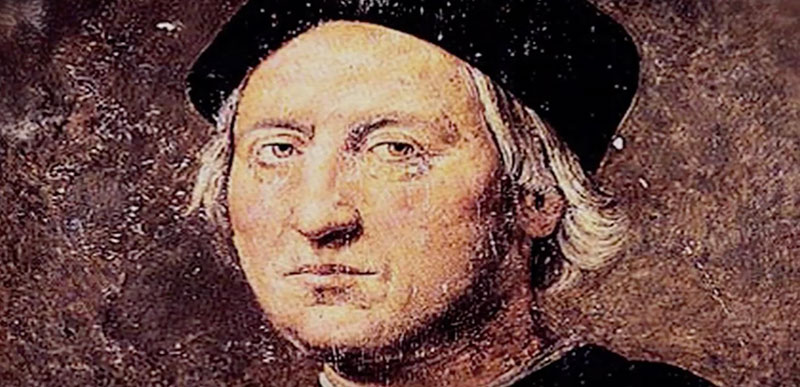There’s a lot out there claiming that Christopher Columbus was this monster who committed genocide when coming to America. Just look him up on Youtube and you’ll see it everywhere.
But the Daily Signal offers us a completely different picture of Christopher Columbus, one backed up by those who’ve done great research into the life of Columbus:
The truth is that Columbus set out for the New World thinking he would spread Christianity to regions where it didn’t exist. While Columbus, and certainly his Spanish benefactors, had an interest in the goods and gold he could return from what they thought would be Asia, the explorer’s primary motivation was religious.
“This conviction that God destined him to be an instrument for spreading the faith was far more potent than the desire to win glory, wealth, and worldly honors,” wrote historian Samuel Eliot Morison over a half-century ago.
In fact, as contemporary historian Carol Delaney noted, even the money Columbus sought was primarily dedicated to religious purposes. Delaney said in an interview with the Catholic fraternal organization the Knights of Columbus:
Everybody knows that Columbus was trying to find gold, but they don’t know what the gold was for: to fund a crusade to take Jerusalem back from the Muslims before the end of the world. A lot of people at the time thought that the apocalypse was coming because of all the signs: the plague, famine, earthquakes, and so forth. And it was believed that before the end, Jerusalem had to be back in Christian hands so that Christ could return in judgment.
Columbus critics don’t just stop at accusing him of greed. One of the biggest allegations against him is that he waged a genocidal war and engaged in acts of cruelty against indigenous people in the Americas.
But historians like Delaney have debunked these claims.
Rather than cruel, Columbus was mostly benign in his interaction with native populations. While deprivations did occur, Columbus was quick to punish those under his command who committed unjust acts against local populations.
“Columbus strictly told the crew not to do things like maraud, or rape, and instead to treat the native people with respect,” Delaney said. “There are many examples in his writings where he gave instructions to this effect. Most of the time when injustices occurred, Columbus wasn’t even there. There were terrible diseases that got communicated to the natives, but he can’t be blamed for that.”
Columbus certainly wasn’t a man without flaws or attitudes that would be unacceptable today.
But even as a man of an earlier age in which violence and cruelty were often the norm between different cultures and people, Columbus did not engage in the savage acts that have been pinned on him.
Considering that Constantinople fell in 1453 to the Seljukian Turks, this makes a lot of since. Christianity in those days had spread, but Rome and Constantinople were still the epicenters of Christianity. And for centuries these Turks were laying siege to Christianity.
Christianity was shrinking and Jerusalem was lost. It was no wonder they felt Armageddon was upon them.
I’ll have to do more research on my own, but I find this recollection of history to be plausible and quite interesting.

